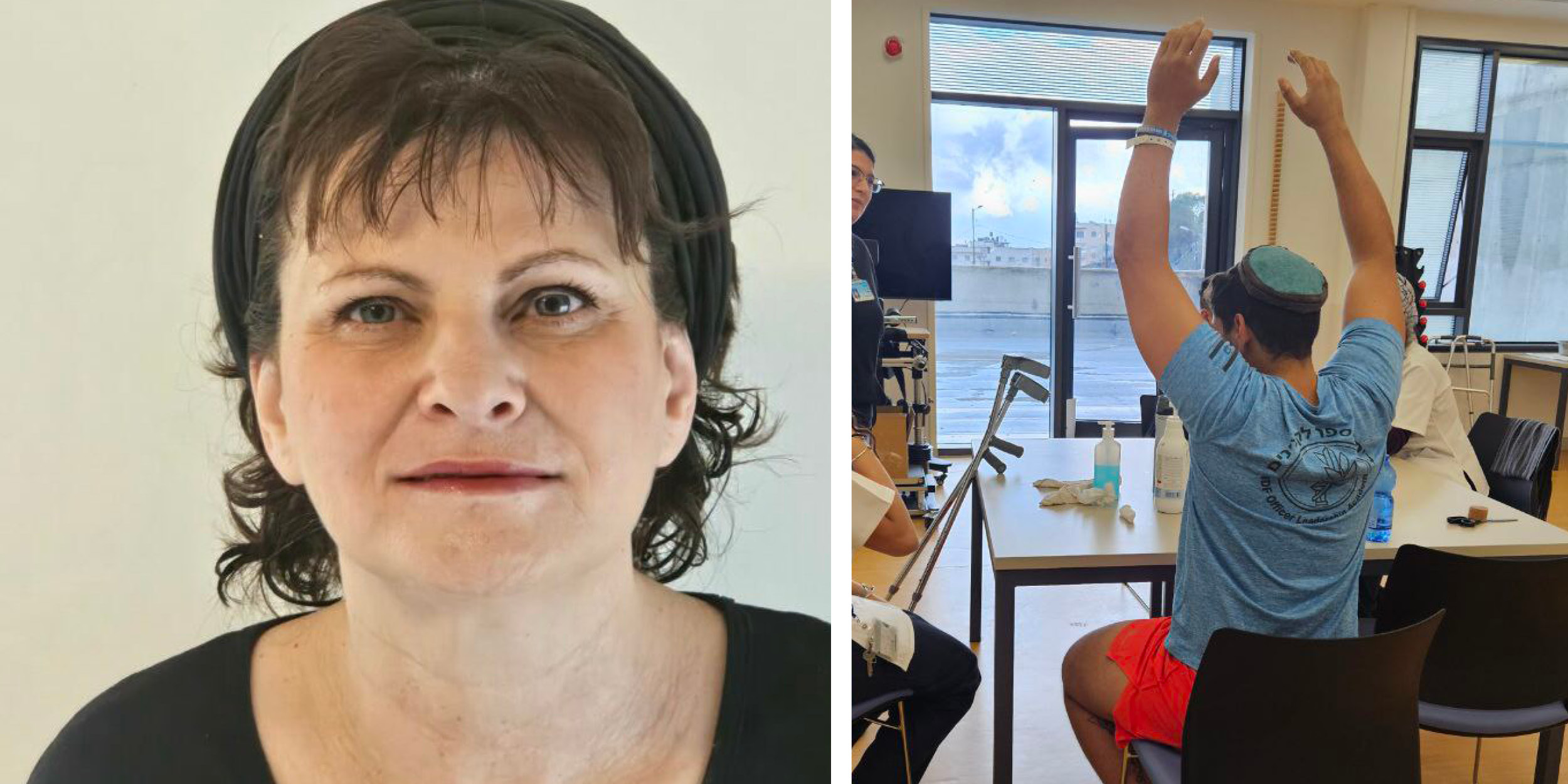
At Hadassah, the focus on mental health has never been more critical. Dr Ruth Elimelech, the head of psychological services at the Gandel Rehabilitation Center, leads a team dedicated to addressing the psychological wounds of war that accompany the physical injuries of the soldiers and civilians who pass through their doors.
The psychological department works closely with physical, occupational, and speech therapists to create comprehensive treatment plans tailored to each patient’s needs. This multidisciplinary approach ensures that both the physical and mental aspects of recovery are addressed.
One of the most challenging aspects of her work involves helping soldiers who have been severely wounded in combat. Dr Elimelech describes how body-mind techniques, such as breathing exercises and visualisation, are used to manage pain and emotional distress. But her care goes beyond managing immediate symptoms; it also involves addressing deeper emotional issues like survivor’s guilt and the loss of identity that many soldiers face.
“We were first learning body-mind techniques to help him... But we also deal with his feelings of panic, the difficulty of being wounded, being dependent again on his parents when he’s already in his early 30s. It’s not easy,” she shares in an article published at the Washington Jewish Week.
These soldiers often struggle with the gap between how they view themselves and how society perceives them as heroes. Dr Elimelech notes, “Many of them are dealing with moving on. They lost many friends in the battles and, in some of them, there’s a deep sorrow and struggle with their loss, even with parts of themselves.” This highlights the complex emotional landscape that her team navigates daily.
For Dr Elimelech, the work is deeply personal. As the mother of a soldier currently serving in Gaza, she feels a profound connection to her patients. “When I see patients, I treat each one of them as if it was my son,” she says, reflecting the deep empathy that guides her approach to care.
At Hadassah’s Gandel Rehabilitation Center, the integration of mental health into the rehabilitation process is not just a priority—it is a lifeline for those rebuilding their lives after trauma.
Through the tireless efforts of Dr Elimelech and her team, patients are given the tools they need to heal both physically and mentally, paving the way for a future filled with hope and resilience.
Back to Newsletter